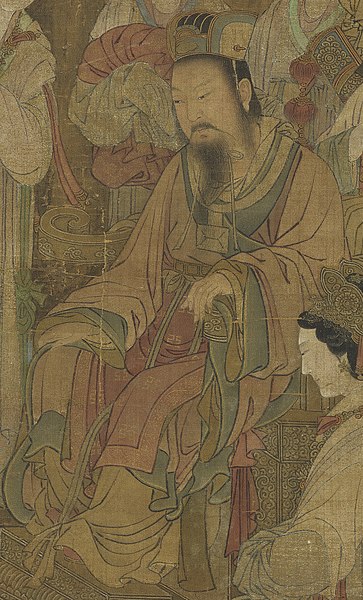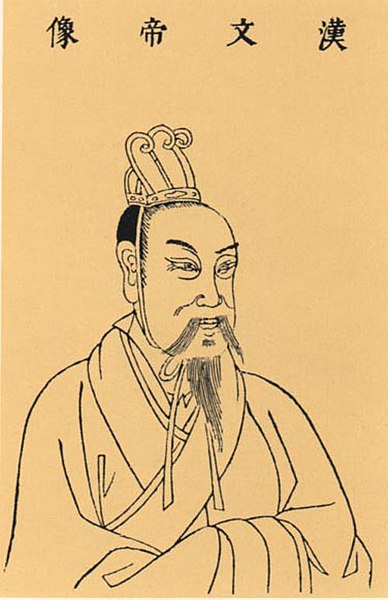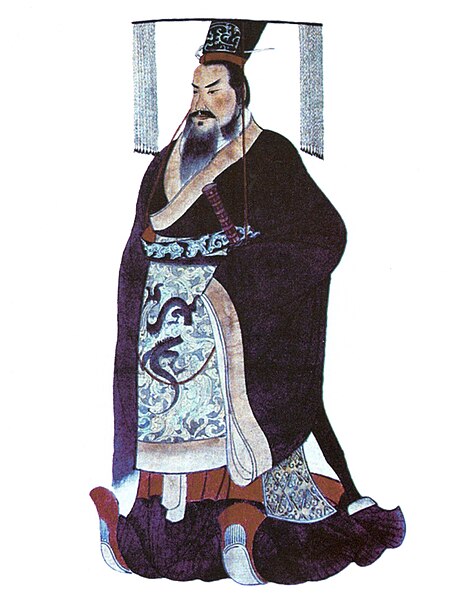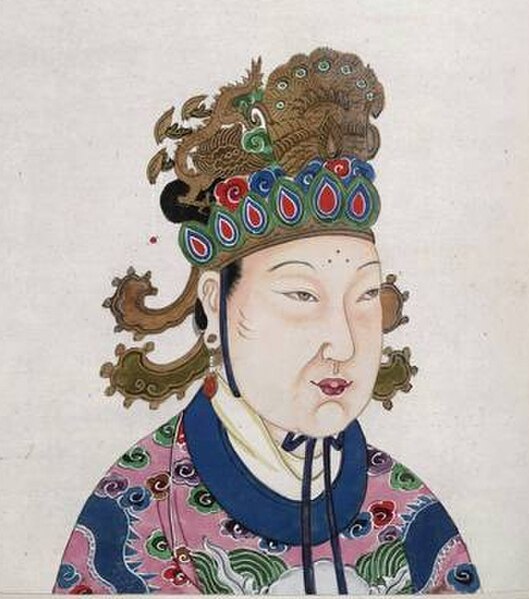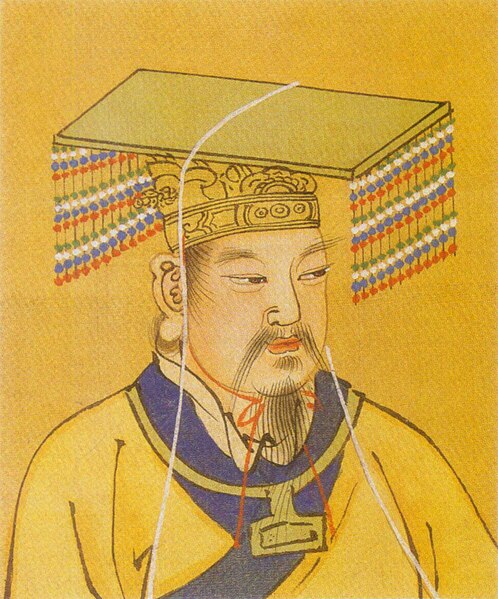Emperor Wen of Han, personal name Liu Heng (劉恆), was the fifth emperor of the Han dynasty from 180 until his death in 157 BC. The son of Emperor Gao and Consort Bo, his reign provided a much needed stability within the ruling Liu clan after the unstable and violent regency of Empress Lü, who went after numerous members of the clan. The prosperous reigns of Emperor Wen and his son Emperor Jing are highly regarded by historians, being referred to as the Rule of Wen and Jing.
Posthumous Song dynasty depiction of Emperor Wen, detail from the hanging scroll, Refusing the Seat
Ceramic female attendants from the tomb of Empress Dou (d. 135 BCE), Western Han dynasty, Shaanxi History Museum, Xi'an
The emperor is seated and listens intently to his official Yuan Ang at Shanglin Garden.
Emperor Wen of Han from the Sancai Tuhui
Throughout Chinese history, "Emperor" was the superlative title held by the monarchs who ruled various imperial dynasties. In traditional Chinese political theory, the emperor was the "Son of Heaven", an autocrat with the divine mandate right to rule all under Heaven. Emperors were worshiped posthumously under an imperial cult. The lineage of emperors descended from a paternal family line constituted a dynasty, and succession in most cases theoretically followed agnatic primogeniture.
Qin Shi Huang, the first emperor of China (r. 221–210 BC)
Qin Shi Huang escaping assassination (3rd century AD)
An 18th century depiction of Wu Zetian, the only female emperor of China
Yellow Emperor

